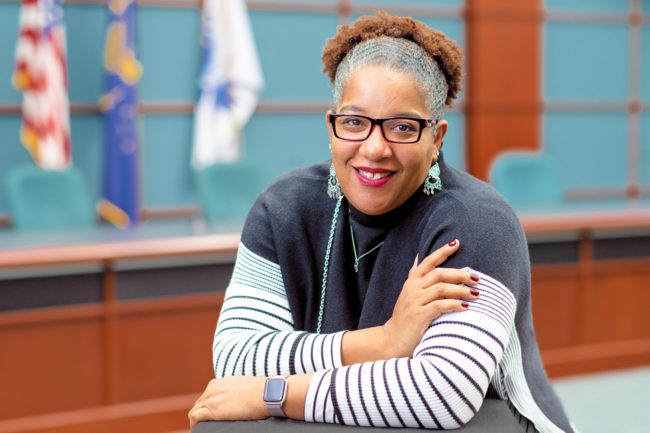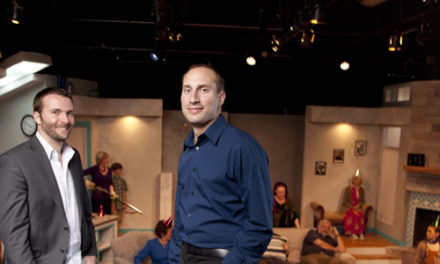
by TRACY ZOLLINGER TURNER
Nicole Bolden comes from a lineage of women with a legacy of firsts. Her grandmother was the first Black nurse to work in the University of Iowa Hospitals. Her mother, Valeri Haughton, was the first Black woman to be directly elected to the Monroe County judiciary. In 2015, Bolden became the first Black woman elected to citywide office in Bloomington and is the only LGBTQ woman of color in elected office in Indiana.
Born and raised in Iowa City, Bolden followed her mother to Bloomington shortly after graduating high school. Here, she attended Indiana University, where she met her ex-partner and father of her two daughters, Taegan and Zora, who are grown. After she completed law school in 2008, Bolden was asked to take a position as a hearing officer in the office of the city clerk, which “turned out to be the best thing that could have ever happened in my life,” she says. “I began to see how just working in one little space could have a really wide impact on the town.” She worked as deputy city clerk for five years before running for clerk.
“Being clerk,” she says, “is an opportunity to serve that is not taken lightly. It’s not glamorous, but it’s definitely a privilege.”
Bolden has been thinking about herself among newer trailblazers in local public offices and wondering, “If you’re operating in this space where you are the first person or the only person, or you’re different than the majority of your peers, how does that impact you? How does it impact your peers?”
It can be especially tricky in a liberal, university town like Bloomington, she says, where racism so often shows up in its less obvious form: implicit bias. “If you’re working with somebody who thinks that they are liberal or progressive, but then says things about not trusting somebody of color, or comments that somebody of color got angry really fast while at the same time not recognizing the anger that a white person displayed, talking them through that perception is close to impossible. They feel like it’s a judgment on their character, rather than recognizing that it’s a judgment on their actions or their words.
“It’s a hard space to navigate. If I say something to somebody, it’s because I really care about them a lot on a personal level or it’s something that’s really damaging to me because it’s not always a safe thing to do.”










